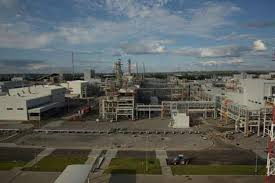Production of PVC results of 2015 and prospect of 2016

Last year the volume of production of unmixed (in pure form) “Polyvinyl Chloride“ (PVC) in Russia increased by 20%. Also production of emulsion PVC (ePVC) was resumed. Last year’s demand was satisfied due to import, as was reported in the Annual review “PVC in Russia – 2016″.
Following the results of 2015 the total production volume of PVC in Russia made 782,4 thousand tons (653 thousand tons in 2014). The main gain of production was provided by “RusVinyl“. The leader of last years Sayanskkhimplast seriously reduced loading of capacities because of shortage of ethylene.
Renewal of production of emulsion Polyvinyl Chloride on “RusVinil” became also key event of last year.Since February, 2015 the enterprise made about 9,5 thousand tons of pitch and there was to 100% a level of loading of capacities. In 2016 the further increase in production of emulsion PVC on the basis of RusVinil is expected.Annual power on production of emulsion PVC at the enterprise makes 30 thousand tons.
As for production of suspension Polyvinyl Chloride– the total production volume grew to 772,9 thousand tons (637,8 thousand tons in 2014). The largest producer RusVinil acquired 228,4 thousand tons – in 5,5 times more, than last year.
Sayanskkhimplast forcefully reduced production volume to 207,6 thousand tons (by 75,4 thousand tons less than 2014).
The “Bashkir Soda” company and Caustic (Volgograd) last year was made by 242,2 thousand tons and 94,7 thousand tons respectively, that is insignificant less, than last year.
The further gain of production of suspension PVC is expected in 2016. It will be mainly provided with RusVinil.
Dictation of RusVinyl Co. is possible also as: RusVinil
***********************
News edited and wired by:
Russian News Correspondent

Olga Prodovskaya
Journalist, former Editor-in-chief of Plastics Magazine, Russia
************************
Extra complimentary info has been added to the news by PIMI editorial team
Here in Tehran, Iran
About RusVinyl:

«RusVinyl» LLC is a Russian-Belgian joint venture operating a Polyvinyl Chloride (PVC) Integrated Plant near Kstovo in the Nizhniy Novgorod region.
The shareholders of the joint venture company are SIBUR, a first-rate petrochemical holding company in Russia, and Solvay through Solvin Holding Nederland BV.
RusVinyl PVC plant uses the cutting-edge European technologies (BAT – Best Available Techniques) that assure the necessary range of PVC with low process costs, and will comply with the most rigorous environmental requirements of the Russian Federation. The project plant capacities are 300 kilotons of PVC- suspension, 30 kilotons of PVC- emulsion and 225 kilotons of caustic soda.
Click to Read More on RusVinyl
**************************


Polyvinyl chloride, more correctly but unusually poly(vinyl chloride), commonly abbreviated PVC, is the third-most widely produced synthetic plastic polymer, after polyethylene and polypropylene.
PVC comes in two basic forms: rigid (sometimes abbreviated as RPVC) and flexible. The rigid form of PVC is used in construction for pipe and in profile applications such as doors and windows. It is also used for bottles, other non-food packaging, and cards (such as bank or membership cards). It can be made softer and more flexible by the addition of plasticizers, the most widely used being phthalates. In this form, it is also used in plumbing, electrical cable insulation, imitation leather, signage, inflatable products, and many applications where it replaces rubber,












